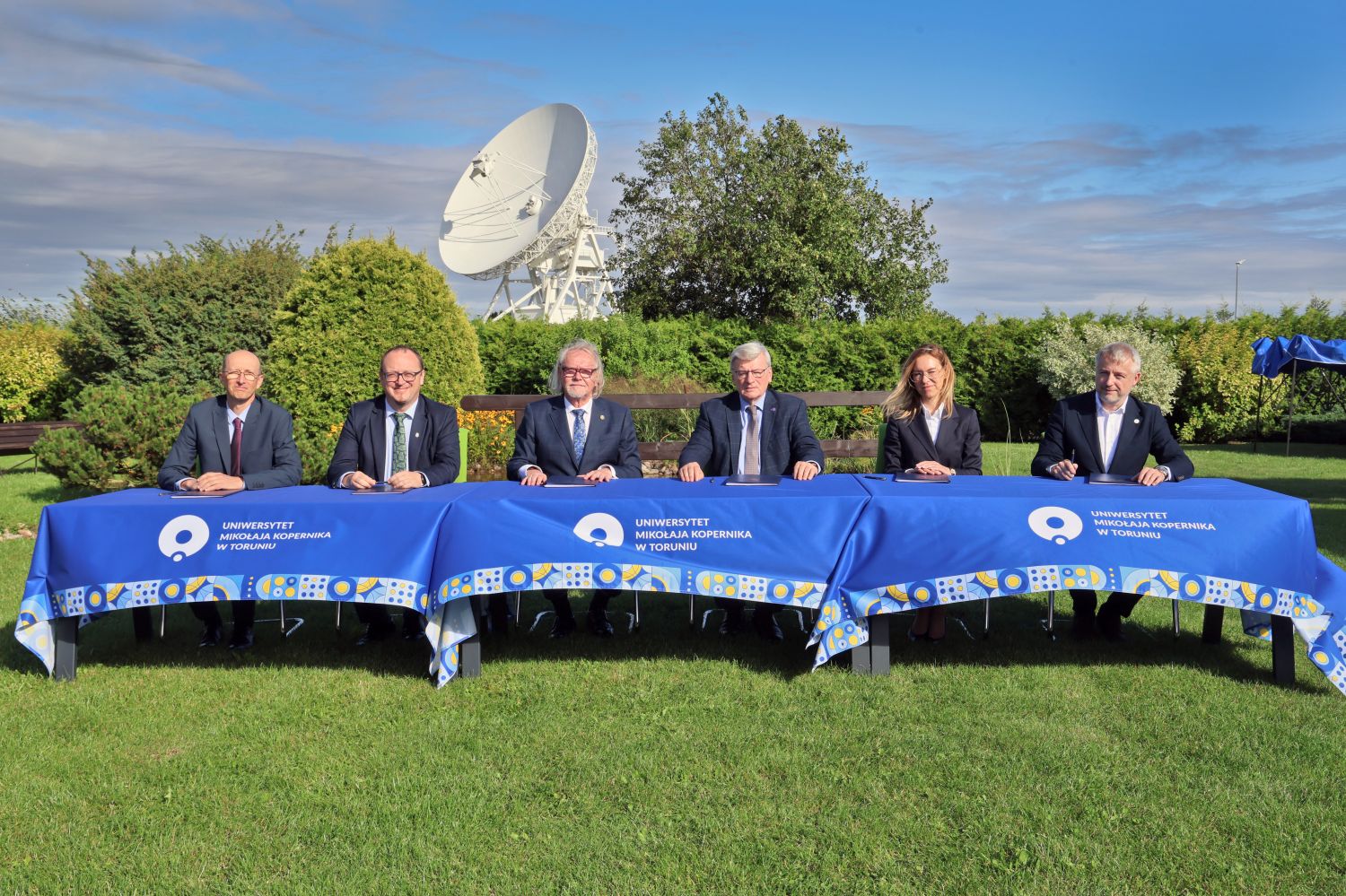
CAMK PAN has become a member of the Polish SKAO Consortium
The Nicolaus Copernicus Astronomical Center of the Polish Academy of Sciences has joined the Polish Consortium of the SKA Observatory (SKAO) project, coordinated by Nicolaus Copernicus University in Toruń. The agreement establishing the consortium was signed on September 15, 2025, at the NCU Astronomical Observatory in Piwnice.
What is the SKA Observatory?
SKAO (Square Kilometre Array Observatory) is an international organization building the world’s largest radio astronomy observatory, located in two sites: SKA-Low in Western Australia, operating in the 50–350 MHz frequency range, and SKA-Mid in the Karoo region of South Africa, covering the 0.35–15.4 GHz band. The SKAO headquarters is located at Jodrell Bank in the United Kingdom. Research conducted within the project will include the earliest stages of the Universe’s evolution, the nature of dark matter and dark energy, sources of gravitational waves, the search for signs of life beyond Earth, studies of cosmic magnetism, and monitoring phenomena related to “space weather.” The project stands out for its unprecedented scale of data collection and requires global cooperation among many countries in the construction and operation of its infrastructure.
The Role of CAMK PAN
As a member of the Polish SKAO Consortium, CAMK PAN will take part in the preparation and implementation of scientific projects as well as in technological cooperation related to the launch and subsequent operation of the SKA telescopes. The project coordinator at CAMK PAN is Dr. habil. Jarosław Dyks.
The Polish SKAO Consortium
The consortium initially consists of eight institutions: University of Warsaw, Jagiellonian University, Nicolaus Copernicus Astronomical Center of the Polish Academy of Sciences, National Centre for Nuclear Research, University of Warmia and Mazury in Olsztyn, University of Szczecin, University of Zielona Góra, and – as coordinator – Nicolaus Copernicus University in Toruń.
Sources: UMK article: “Cosmic observations under the leadership of NCU” (15.09.2025); SKA Observatory.






